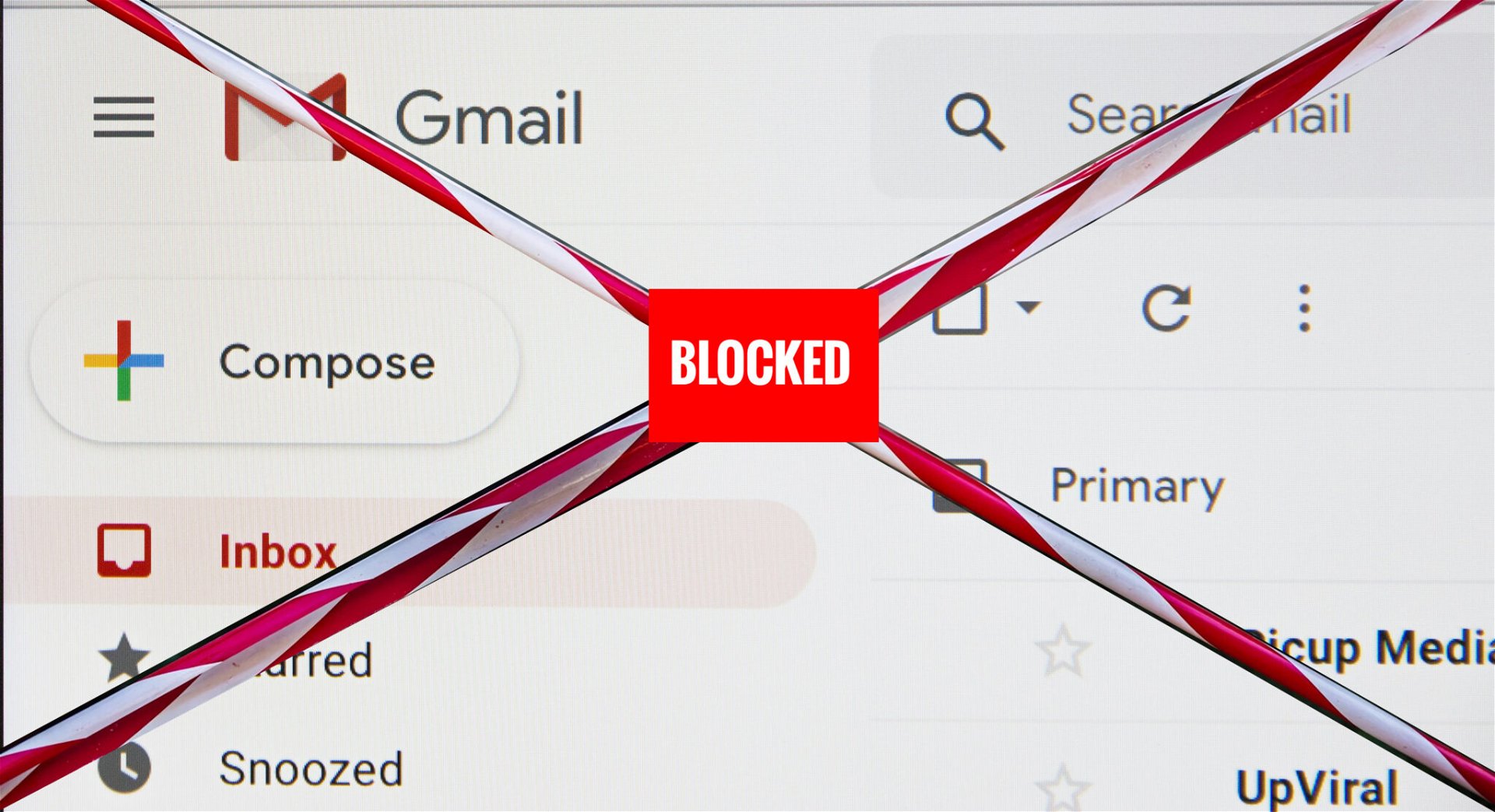
The Gmail and Microsoft DMARC Policy UPDATE that you may not be aware of is something you need to take note and check ASAP.
In October 2023, Google and Yahoo collaboratively introduced fresh sender criteria for incoming emails to their domains, which was scheduled to be implemented in early 2024. These criteria primarily target bulk senders at the moment.
For an extended period, gmail.com has maintained a DMARC policy record with a “p=none” statement, indicating that the domain owner does not want DMARC validation results to affect the message’s disposition. Consequently, messages impersonating Gmail’s “From” headers have consistently failed DMARC, but the impact has been minimal due to the “p=none” policy.
Effective February 1, 2024, Google is altering this policy statement to “p=quarantine,” signaling a shift in preference. This change means that messages using gmail.com in the “From” domain, which fail DMARC, will be directed to recipients’ spam folders rather than their inboxes. As a result, emails attempting to impersonate Gmail “From” headers are more likely to be classified as spam.
What’s changing with DMARC in 2024
The primary DMARC requirement in 2024, notably imposed by both Google and Yahoo, affects organizations sending over 5,000 emails daily. To ensure the proper delivery of emails and prevent them from being marked as spam, organizations must adhere to the following guidelines:
Authenticate their domain: This involves implementing a DMARC record with a minimum policy of p=none, along with SPF and DKIM records. Additionally, organizations should ensure SPF or DKIM alignment and maintain Forward-Confirmed Reverse DNS (FCrDNS).
Facilitate easy unsubscription: Organizations with a current unsubscribe link in commercial emails must incorporate a one-click unsubscribe feature by June 1, 2024.
Maintain low spam rates: To comply with the requirement, organizations must ensure that spam rates reported in Postmaster Tools remain below 0.3%. Keeping these rates low is crucial for effective email delivery and sender reputation.
Am I Affected By This?
You can easily check your domain name using https://mxtoolbox.com/dmarc.aspx and then search the data for your domain name.


To update or change a DMARC (Domain-based Message Authentication, Reporting, and Conformance) value, you’ll typically need to make modifications to the DNS (Domain Name System) records for your domain. Here are the general steps:
Access your DNS Management Interface:
Log in to the account where your domain is registered or where you manage your DNS settings. This is often with your domain registrar or hosting provider.
Locate the DMARC Record:
Look for the existing DMARC record in your DNS settings. It is a TXT (text) record associated with your domain.
Modify the DMARC Record:
Edit the DMARC record to change the desired values. The DMARC record typically includes parameters like the policy (p), the percentage of messages subjected to filtering (pct), and the destination for aggregate and failure reports (rua and ruf).
Example of a DMARC record:
v=DMARC1; p=none; rua=mailto:your@domain.co.uk; ruf=mailto:your@domain.co.uk; pct=100;
In this example, you could change p=none to p=quarantine or p=reject, depending on your desired policy.
Verify Syntax and Save Changes:
Ensure that the syntax of your DMARC record is correct. Incorrect syntax can lead to misconfigurations. Save the changes after modifying the record.
Propagation Time:
Keep in mind that DNS changes may take some time to propagate across the internet. The duration can vary, but it’s typically a matter of hours to a day.
Testing:
After the DNS changes have propagated, it’s advisable to test your DMARC configuration using tools like DMARC analyzers or checkers. This helps ensure that your updated DMARC policy is correctly implemented and doesn’t unintentionally impact your email delivery.
Remember that the specific steps may vary slightly depending on your domain registrar or DNS hosting provider. If you’re unsure about the process, it’s recommended to consult the support documentation provided by your domain registrar or seek assistance from your IT department or technical support team. Additionally, changes to DMARC policies should be approached cautiously to avoid unintended consequences on email deliverability.
If you need help and assistance, whether you are Chameleon client or not,get in touch via contact form or call +44 121 663 0456 to speak to a specialist.
Share This Content
More Chameleon Insights
- Chameleon Updates
- General
Happy New Year – Will 2026 Be the Year Your Business Grows?
A new year always brings optimism, ambition, and big plans. But as we move into 2026, many UK businesses are asking a very real question: will this be the year we finally see consistent growth again? Since COVID, trading conditions have been tough. Add to that ongoing UK Government changes, rising operational costs, staffing pressures,…
02 Jan 2026
- Digital Marketing
Is Content Marketing Dead In 2026?
Chameleon explores whether content marketing is dead as we head into 2026.
26 Dec 2025
- Digital Marketing
Google Search Console Adds New Branded Queries Filter
Google Search Console has introduced a brand new feature: the branded queries filter. This latest addition provides users with a new way to filter their website performance. The feature is designed to help you understand your traffic better and what’s driving users to your website by allowing you to differentiate between query types. What is…
12 Dec 2025
- Digital Marketing
How To Optimise For Google’s E-E-A-T Signals
In this blog, we'll explain what Google E-E-A-T signals are, and how you can optimise your website for greater trust and authority.
28 Nov 2025
- Digital Marketing
What Is Generative Engine Optimisation? (GEO)
What is GEO? In this blog, we delve deep into what Geneartive Search Optimisation is, and how it's shaping the future of digital marketing.
17 Nov 2025
- Digital Marketing
How AI Is Changing Content Creation in 2025
Discover how AI is changing content creation in 2025 with Chameleon Web Services. Find out about AI copywriting, social media & video form in our full guide.
30 Oct 2025
- Digital Marketing
- Social Media
- Web Design
Top 10 Canva Tips – What Every Content Creator Should Know
Discover Chameleon Web Services top 10 Canva Tips for content creators. Design eye-catching graphics with ease. Perfect for beginners & pros alike.
16 Oct 2025
- Digital Marketing
Google Removes the ‘&NUM=100’ Parameter: What it Means for Digital Marketing
Google has removed the '&NUM=100' parameter, but what does this mean for digital marketing? Chameleon Web Services unpack the details and how you can adapt.
02 Oct 2025
- Chameleon Updates
- Company
Which company is best for web designing?
When searching online for the best company for web designing services, it’s easy to feel overwhelmed. With thousands of agencies offering everything from “cheap websites” to “luxury digital experiences,” how do you know which one to choose? Of course, we’d say Chameleon Web Services is the best – and here’s why. Experience That Stands the…
02 Sep 2025
- Advertising
- Car Competition
- Chameleon Updates
- Competition
- Google Advertising
- Marketing
- Prize Draw
- SEO
Car Prizes and Competitions
Car Prizes and Competitions Driving Digital Success The world of car prize draws and competitions has exploded in recent years, with names like Dream Car Giveaways, Nitrous Competitions, Omaze, and 7 Days Performance creating huge followings online. Now, with Porsche Club GB launching its very first official prize draw to win a Porsche, the market…
18 Aug 2025
- SEO
Google Ads vs Facebook Ads for Small Businesses: A Guide
Wondering whether Google Ads or Facebook ads would be better for your small business? Read our full breakdown here to find out.
08 Aug 2025
- SEO
Are Your BT Phone Lines Down? How Chameleon Help Keep Businesses Connected
Is your BT phone line not working but your internet is? Yesterday, as you may know, there was a major outage that hit the main providers such as EE, BT, Vodaphone, and more. With EE and BT phone lines not working, as imagined, this impacted millions of people across the country, customers enquiring about services,…
25 Jul 2025













